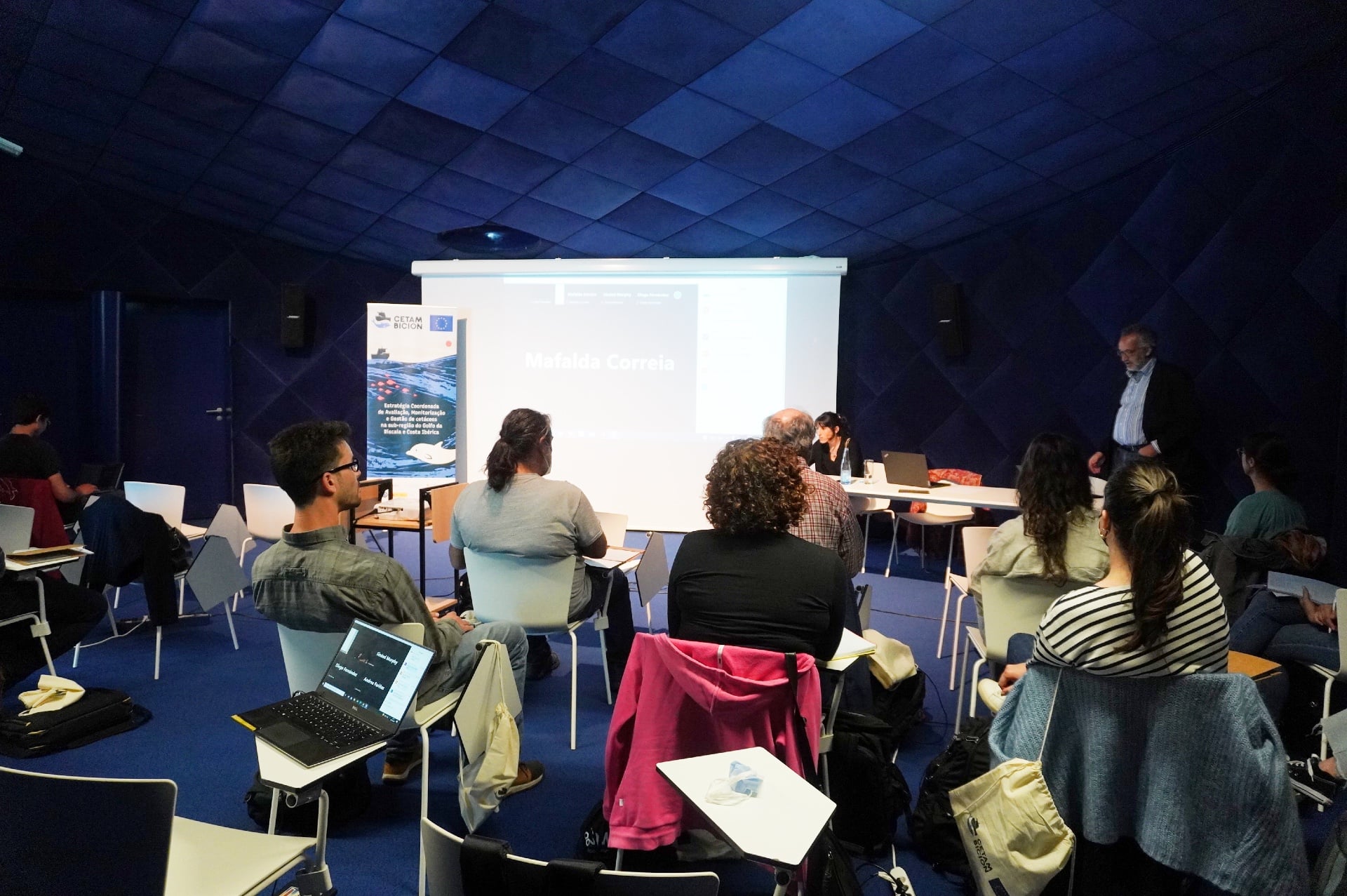In the framework of the European project “Coordinated Strategy for the Assessment, Monitoring and Management of Cetaceans in the Bay of Biscay and Iberian Coast sub-region” (CetAMBICion), a technical workshop has been held in Porto (Portugal), aiming at establishing a list of species, indicators, and scales of assessment to propose a coordinated assessment of cetaceans... Read more »
In the framework of the European project “Coordinated Strategy for the Assessment, Monitoring and Management of Cetaceans in the Bay of Biscay and Iberian Coast sub-region” (CetAMBICion), a technical workshop has been held in Porto (Portugal), aiming at establishing a list of species, indicators, and scales of assessment to propose a coordinated assessment of cetaceans in this sub-region under the Marine Strategy Framework Directive.
For three days, the workshop addressed various issues related to the cetacean assessment strategy. Among other topics, the criteria for drawing up a list of cetacean species were discussed, as well as an overview of the monitoring programs proposed for odontocetes (both small and deep-diving toothed cetaceans) and for baleen whales. In addition, a proposal for indicators and assessment scales for each species selected have been put forward.
PROJECT PARTNERS
The workshop has been addressed to the partners of this initiative, which aims to address the need to reduce cetacean bycatch in European Union fisheries, especially in the Bay of Biscay and the Iberian coast. Until 2023, this initiative, which involves 15 partners from France, Portugal, and Spain, will strengthen collaboration and scientific work between the three countries, with the participation of the fisheries sector, which is one of the key elements of this European project.
The project, coordinated by the Marine Research Institute (IIM-CSIC), involves as Spanish partners the Ministry for Ecological Transition and the Demographic Challenge, through the Biodiversity Foundation and the General Directorates of Biodiversity, Forests and Desertification and of the Coast and the Sea; the General Secretariat of Fisheries of the Ministry of Agriculture, Fisheries and Food (MAPA); as well as the Spanish Institute of Oceanography (IEO-CSIC) and AZTI.
On the French side, the University of La Rochelle, the Ministry of Ecological Transition and the French Biodiversity Office are represented as partners.
Portugal participates through the Directorate General of Natural Resources, Safety and Maritime Services; the Portuguese Institute of the Sea and Atmosphere; the Institute for Natural Conservation and Forests; the Interdisciplinary Centre for Marine and Environmental Research and the University of the Algarve.
The project is part of the European Commission’s DG ENV/MSFD 2020 (Marine Strategy Framework Directive) call and is also developed in line with the requirements of the Habitats Directive and the Common Fisheries Policy.


